Category: Policy and Governance
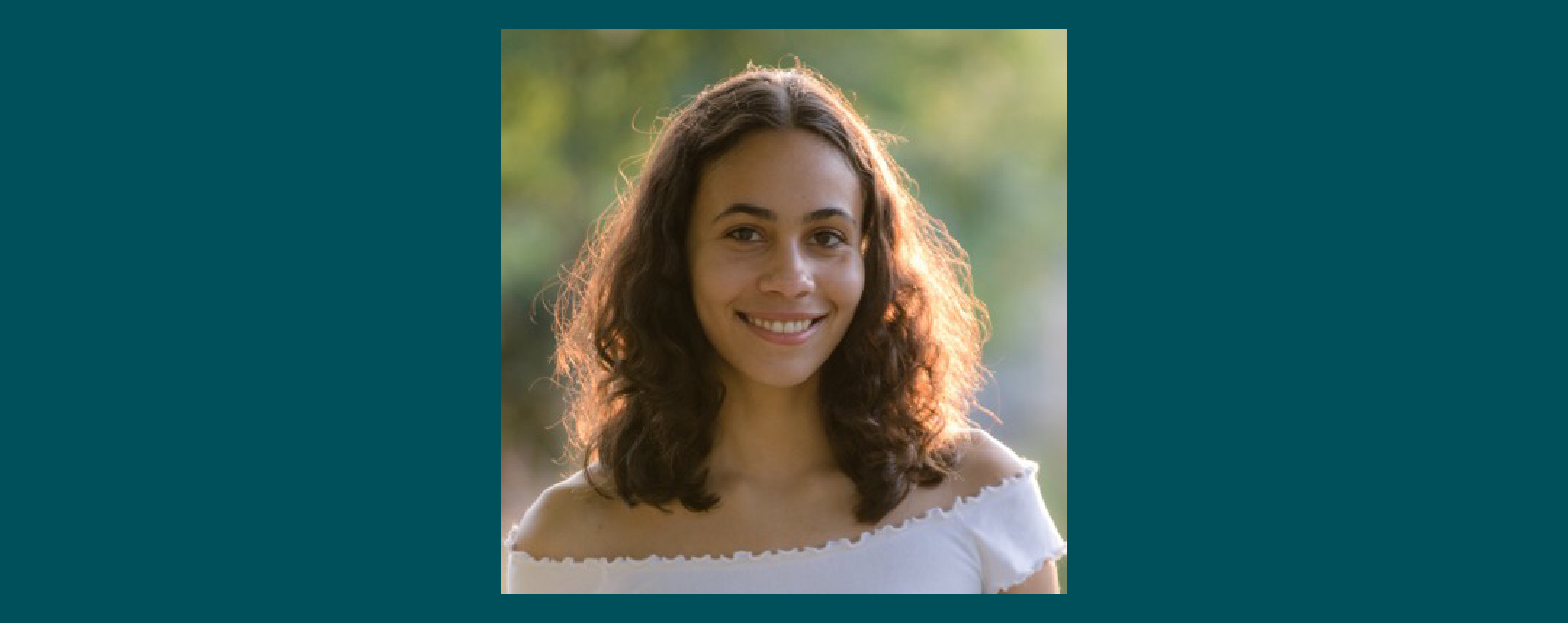
Revisiting Milwaukee: Learning About My Hometown Through Service
By Elyse Cornwall, ’22
The first time I drove to Moody Park, I suppressed my nerves about driving into an area known for reckless driving. I reminded myself that these feelings came from racist assumptions about a community I had never meaningfully interacted with. Still, I stopped at green lights as oncoming cars ran the red, and rushed down main streets to keep other cars from skirting past me. Thus, I arrived at Moody Park feeling simultaneously afraid and embarrassed, and that was when the youth participants arrived. My primary responsibilities were event planning and coordinating with other volunteers, but I realized that my work behind the scenes could not be effective until I immersed myself in the community I served. When I ate meals, played games, and shared stories at Moody Park, a new side of my service experience emerged.
My weekly discussions with youth living near Moody Park covered topics like drugs and alcohol, police relations, and reckless driving. The group’s familiarity with dangerous situations seemed to contradict their charisma and friendliness. I helped host the Zeidler Center’s listening circle events, which allowed youth and police officers from the area to talk with each other in small groups. The youth took turns responding to prompts such as, “Describe an experience you have had with a police officer,” sharing their experiences rather than debating or convincing anyone. The Zeidler Center hosts listening circles like these throughout the Greater Milwaukee Area, featuring topics like political polarization, race relations, and education. These events are based on the organization’s belief that open, respectful dialogue promotes positive change. I watched as the listening circles at Moody Park shifted from short responses to candid conversation. By the end of the discussions, youth and officers were sharing accounts of their days and stories of hardship, relating to one another on a personal level.
As an outsider in this community, I felt hesitant to expand beyond my role as a staff member, but eventually gave in with the encouragement of the youth and other staff. I shared my own experiences, admitted the gaps in my knowledge of Milwaukee, and put myself in a position to learn from the youth I had aimed to serve. Not only did I feel more connected to a community that I hadn’t interacted with before, but I also felt a stronger obligation towards my city. I found that my view of civic duty and participation changed once I got to know the people with whom I was sharing a community.
By the end of the summer, I started to see my service experience in connection to my parents’ work in Milwaukee as public servants. Usually, I thought of my parents as lawyers who happened to work for the state and county. Though they had expressed pride in serving those who relied upon public legal assistance, I never thought of their occupations as reflections of their character. As a court commissioner, my father has the opportunity to combat the racial bias that targets people with his racial identity in most courtrooms. Like my father, the staff and volunteers at the Zeidler Center prioritize listening to and learning from the communities they serve.
I am glad to have developed this new civic understanding in the context of Milwaukee, through the service I have done. When I returned to Stanford in the fall, I brought with me a willingness not only to serve, but also to know the people within my community who are most targeted and misrepresented.

Elyse Cornwall, ’22, studies computer science at Stanford. Originally from Milwaukee, WI, Elyse completed a Cardinal Quarter in her hometown the summer after her freshman year, working to support the Zeidler Center, an organization that fosters civil dialogue across perspectives. At Stanford, Elyse is a CS106A section leader; a team leader for Ideas Out Loud, Stanford’s TEDx club; and a member of the Delta Delta Delta Sorority.
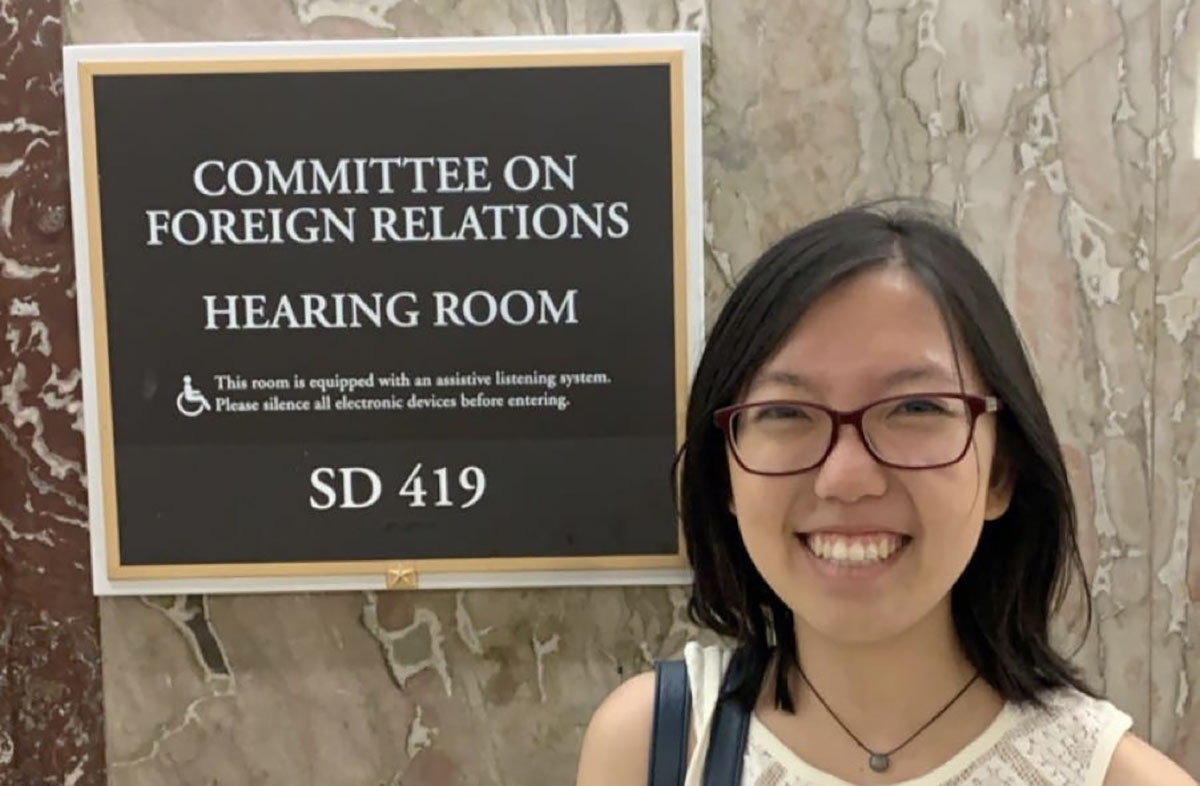
Policymaking by Empathy: Interning at the State Department
By June Lee, ’21
It’s 8:10am when I walk into the office, my blouse lightly dampened by my walk under the merciless Washington, D.C. sun. As I head to my cubicle, I hear snatches of conversations on the humanitarian crisis in Yemen and the current status of peacekeeping in Mali. I can’t help but feel a secret thrill to be working alongside individuals on issues I’d only ever read about and studied in classes.
Interning at the U.S. State Department’s Bureau of Conflict Stabilization Operations was, academically, one of the most enriching experiences I’ve had. Through weekly meetings, I gained exposure to the incredible breadth of concerns incorporated into the United States’ conflict stabilization efforts, from the role of women in peace processes, to the importance of intra-group cohesion in negotiations, to the efficacy of interventions by nonprofits and other third parties. No matter what project I was working on, it was fascinating to realize that here, my efforts could have a direct application for policy. Translating an article evaluating violence reduction in Colombia could directly inform the bureau’s engagement with partner organizations on the ground. Similarly, developing a digital framework on Excel depicting election violence indicators could help the bureau allocate funding and resources quickly to mitigate the risks of political violence. Over time, I also gained familiarity with the inter-agency process and overlapping departmental structures responsible for developing and implementing U.S. foreign policy.
Yet the most valuable thing I learned from my internship was the incredible depth of empathy it takes to work as a public servant in the State Department. The individuals I encountered worked on projects that directly affected the welfare of communities in countries emerging from conflict, and they were constantly thinking about the communities they were seeking to support. This mindset translated to all aspects of their work. My main supervisor related how, while serving as a foreign service officer in New Delhi, he would often bike to work with a camera, and offer to take pictures of people on the street. Their surprise and joy upon receiving a picture of themselves led to his receiving a flurry of texts and blessings every holiday. Another director, frustrated with the United States’ failure to address the humanitarian crisis in Syria, was motivated to resign and work for a nonprofit focused on human rights advocacy for Syrians and other refugees. And, during my daily commute, another officer explained how he had worked in Afghanistan for 18 years, an experience he spoke of with a hint of sadness but also admiration for the resilience of the Afghan people.
Since my internship, I’ve been determined to embrace this mindset. As a director of Stanford in Government and a peer advisor in international relations, I’ve sought to encourage more students to pursue careers in policy and public service. And, while working on my senior thesis, I am committed to developing a research paper that can be beneficial to policymakers and useful in advancing the United States’ efforts in conflict resolution.

Originally from Sunnyvale, CA, June Lee, ’21, studies international relations at Stanford. In addition to completing a Cardinal Quarter summer fellowship with the State Department’s Bureau of Conflict Stabilization Operations in the summer of 2019, June serves as the director of diversity and outreach of Stanford in Government and as a peer advisor for the international relations department. June is also an incoming honors student with the Freeman Spogli Institute’s Center for International Security and Cooperation.
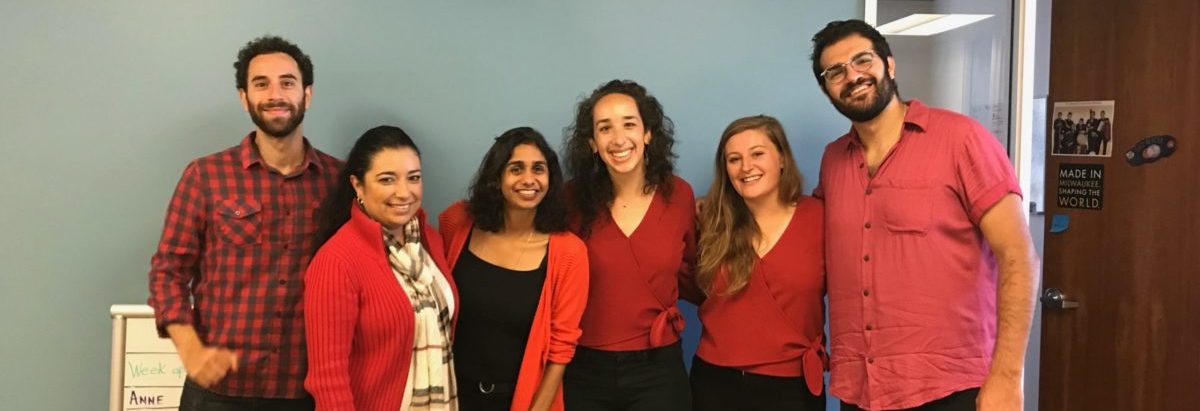
When Home is a Region: Working Towards an Inclusive Bay Area
By Nani Friedman, ’20
In my second week as an intern at Enterprise Community Partners, an organization focused on affordable housing issues, I attended a meeting of the Mayor of Oakland’s Housing Cabinet. A mix of city housing department staff and representatives from affordable housing nonprofits spent the two-hour meeting discussing the importance and challenges of incorporating racial equity components into the city’s affordable housing program guidelines. Though they weren’t able to come to a conclusive decision in two hours, and although people disagreed on the timing and implementation method, everyone was incredibly passionate and utilized their experience to offer new ideas.
I was deeply inspired and motivated by what I saw in that room. As I reflected on what was most meaningful to me this summer, I kept coming back to the constant excitement I felt spending all summer around people who shared my passion for and my perspective on the inextricable link between housing policy and racial justice.
As a regional housing policy intern, I spent most of my summer drafting legislative language and conducting research tasks for AB 1487, state legislation that enables the creation of a Bay Area Housing Finance Authority for the entire nine-county (and 101-city) region. I learned that laws are, in fact, written on Word software. I learned about the political and logistical opportunities and challenges of coordinating an affordable housing strategy at the regional level. I began developing a regional perspective, learning comparatively about the unique housing needs across different jurisdictions; the affordable housing landscape is entirely different between Oakland, Palo Alto, Fairfield, and Sonoma in the context of fire recovery, yet we worked to design a framework for a regional authority that will supplement collective needs and work for everyone. I attended convenings with people from around the Bay Area who were trying to work together to solve our regional problems.
Having grown up in the Bay Area, my work in housing justice at the local level has always felt personal. I am witnessing my friends from high school make decisions about whether or not they can afford to live on the Peninsula, while college friends who have graduated join the ranks of new tenants who are both drawn into and disgusted by the contradictions of Silicon Valley culture. Working in the financial district in San Francisco this summer gave me a new perspective into this culture, as I witnessed who actually lives and works in this region. I know that I bear unique witness to this dual perspective, the “old” and the “new.”
However, I did not anticipate that working on a state bill for a regional housing authority would make me reflect on what this entire region means to me personally. I knew that I had a deep commitment to justice in the county I grew up in, but working on housing at the regional level reframed the geographies that I include in my “home.” If custodial staff working at Stanford are commuting from Antioch, I must consider Antioch to be a part of our home. I realized that if I am going to fight towards an inclusive Bay Area – against the racial and socioeconomic segregation that occurs on a regional level – I needed to make my personal definition of home inclusive of the entire region. The futures of Richmond and Marin, for example, or Oakland and Menlo Park, are deeply connected. I now feel that I have a stake in these connections as a part of my dedication to equity in the place I call home.

Nani Friedman (she/her), ’20 grew up in Belmont, CA. With a major in Urban Studies and a minor in Comparative Studies in Race and Ethnicity, Nani applies her studies to affordable housing issues. She has participated in an Urban Summer Fellowship (2019) and a Community-Based Research Fellowship (2017) through Cardinal Quarter. She is a founding member of the Stanford Coalition for Planning an Equitable 2035 (SCoPE 2035), a housing justice activism group at Stanford.
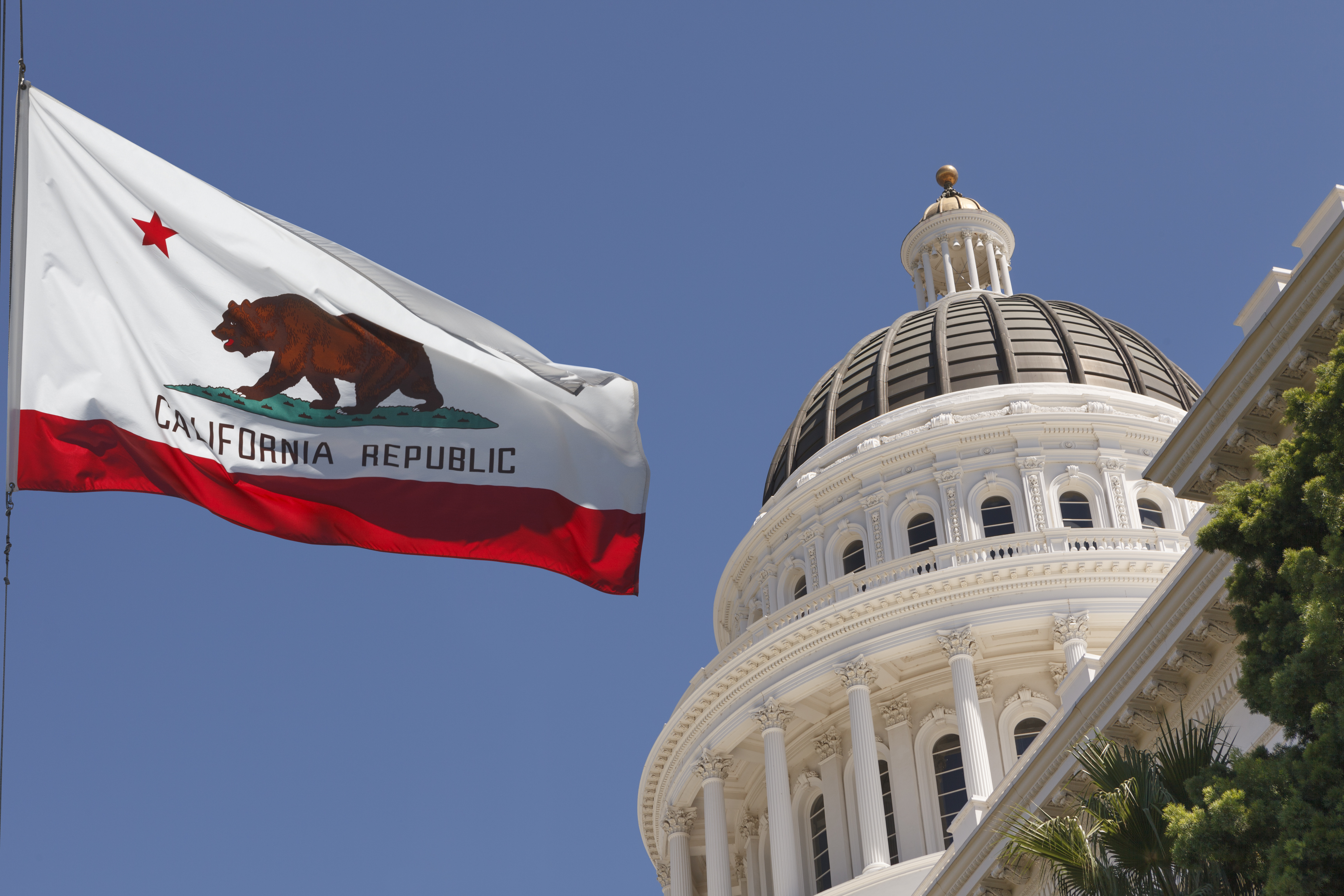
The Global and Local Conversations About Agricultural Conservation
By Kyle Van Rensselaer, ’19, MA ’20
What happens when you pave over a garden? The consequences are fairly small. How about when unchecked urban development paves over tracts of fertile agricultural land?

In a state like California, a major breadbasket for the United States, such changes can threaten food security, land conservation, and farmer welfare. These are pressing issues that the California Department of Conservation’s Division of Land Resource Protection (DLRP) is aware of, and that I was able to help tackle during my Cardinal Quarter in summer 2018.
During my time as a fellow, one of my major assignments was a research project looking into unique agricultural policies in other countries, namely the Netherlands and Israel. My research contributed to a longer white paper that was presented at a UC Davis symposium on climate change in September 2018, which was itself affiliated with the well-known Global Climate Action Summit in San Francisco.
The white paper discussed Californian agriculture broadly and paid particular attention to agricultural conservation in the face of climate change. The Netherlands and Israel, as I discovered through my research, are notable because they prioritize agricultural productivity and sustainability in their legal and economic structures, albeit in much different ways.
Despite having a high population density, the Netherlands has an incredibly efficient agricultural sector that invests in innovative practices such as urban rooftop gardens, large-scale greenhouses, and public engagement with sustainable farming. Israel, on the other hand, caught our attention because 93 percent of its agricultural lands are owned and leased out by the central government, creating an interesting dynamic between free-market impulses and traditional conceptions of how national land should be used.

Although reading about these international programs was fascinating in itself, my team and I were most interested in how the policy prescriptions in the Netherlands and Israel could be applied to California law.
In particular, DLRP is interested in expanding and improving its conservation easement program. This program is designed to promote agricultural conservation by bringing farm owners, land trusts, and the California state government together to protect private farmland from development into perpetuity. I was lucky to visit some of the farms that have signed conservation easement contracts and are therefore committed to conservation efforts on their own properties. These visits were a great learning experience because I was able to see how the Department of Conservation builds dialogue with key stakeholders: the farmers who keep California’s agriculture sector alive and running.
The partnership between DLRP and private landowners gave me insights about community engagement and cultivation. Despite political divides, the government and its stakeholders can find common ground and achieve mutually beneficial outcomes.
In particular, many farmers in California support the Republican Party and, as such, tend to be more skeptical of the environmental policies that lawmakers in Sacramento actively pursue. However, DLRP’s conservation easement program has generated buy-in among these farmers because all parties agree on the relevance of supporting agriculture in the long-term.
My research project seemed more relevant when considered alongside these takeaways from the field: while public ownership of farmland, as in Israel, would be a hard sell in the United States, the targeted investments into agricultural sustainability such as those that the Netherlands makes are much more palatable for farmers in the Californian Central Valley. Witnessing DLRP’s role as mediator between lofty policy goals and actual hands-on implementation of farmland conservation was an opportunity to see how the government can bring together diverse stakeholders, and even unusual allies, to preserve a way of life for generations.
Kyle Van Rensselaer, ’19, MA ’20, is an international relations major, chemistry minor, and coterminal student in international policy. He is the historian for the chemistry fraternity Alpha Chi Sigma, head writer for Stanford Chaparral Magazine, a peer chemistry tutor for the Vice Provost for Teaching and Learning, and a member of the Stanford Axe Committee. He is from Auburn, CA.
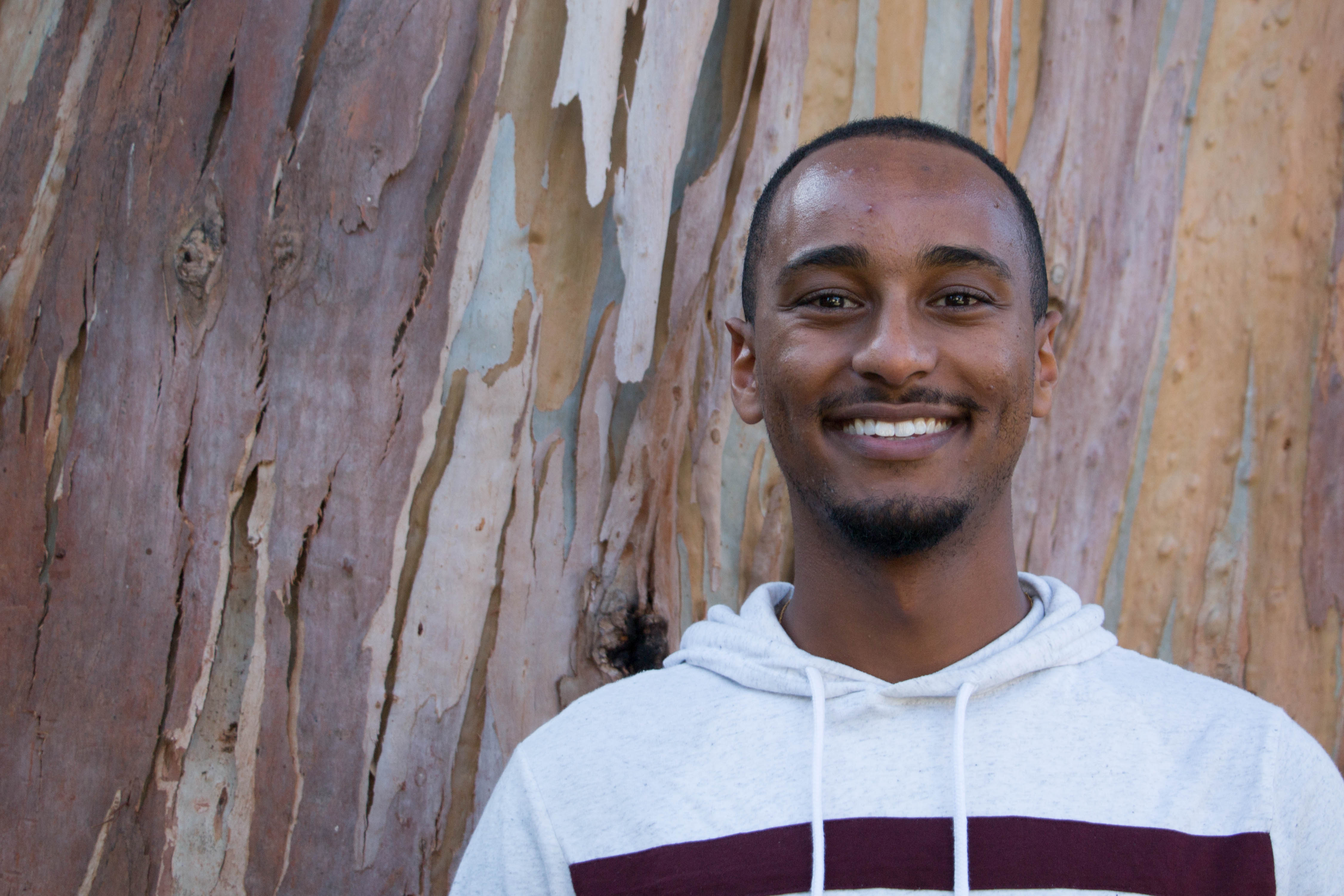
Corresponding with Criminal Justice: Letters that Brought Me Hope
By Samuel Feineh, ’19
It wasn’t until the summer after my sophomore year, through my second Cardinal Quarter opportunity, that I became more confident in who I am and what I stand for.
During summer 2017, I interned at the American Civil Liberties Union’s National Prison Project, which is dedicated to reforming prison conditions nationwide. In 2014, the ACLU filed a 34,000-person class action lawsuit against the Arizona Department of Corrections (ADC) for violating a number of inmates’ constitutional rights. After a long legal battle, the ADC agreed to reform its health care system, limit the use of solitary confinement, and provide greater access to mental health resources. When I arrived, the ACLU was monitoring the department’s compliance.
As part of the class action lawsuit, inmates could send letters to the ACLU. I spent most of my time responding to each inmate who wrote to us to supply them with resources to help them file their own lawsuits, seek medical help, or file a grievance in prison.
Hundreds of inmates wrote. Some had simple requests, and others revealed the horrid prison conditions they faced.
Reading these letters was at times straightforward, and at other times, heartbreaking. There were countless stories about inmates being denied medical coverage by private contractors, and as a result, facing life-or-death situations. In one letter, a prisoner wrote that a prison guard raped a severely mentally ill inmate, yet no investigation was undertaken.
While there was much to be frustrated about, I learned something so important from my colleagues at the ACLU: when you want to change a corrupt system, you have to start somewhere. And after you start, you keep fighting.
I spent hours on each letter, combing through the inmates’ files to send as many resources as possible. I also scrutinized thousands of documents—including medical reports and use-of-force logs—that the ADC sent us to ensure that they complied with various class action stipulations.
As part of this review process, I analyzed prison temperature logs. Each of the 15 ADC state prisons had to record the temperature at set times every day, compile the data, then send it to the ACLU each month. These records helped the ACLU ensure humane conditions in the facilities, especially in the summer months when temperatures sometimes exceeded 100 degrees Fahrenheit. The logs were routine and usually unsurprising, though we wondered if the prisons were falsifying the data because most of the temperatures ranged between 80 and 90 degrees. We had no way of proving deceit, until I found the proof.
One day, while reviewing the last few pages of one state prison’s report to the ACLU, I noticed that the facility had filled in temperature data for six dates that came after the date they had sent us the logs. The ACLU team provided the information to the judge, and swift action was taken to punish the ADC.
Witnessing how evidence is leveraged to administer justice further revitalized my hope in prison reform: through rigorous analysis, I played my part as a watchdog and made a difference.
When I came home each night to the Stanford in Washington house and told my new friends about my work, I felt my newfound sense of purpose seep into the conversation. This experience left me believing I am a change agent, and I’m excited to continue nurturing my passion. I am emboldened to keep fighting.
Samuel “Sam” Feineh is a 2018-19 Cardinal Service Peer Advisor. During the summer of his freshman year, Sam received a Cardinal Quarter to intern for his Congressman on Capitol Hill. This year, he also serves as the vice chair of programming for Stanford in Government and co-president of the Stanford Black Pre-Law Society. He is originally from Sacramento, CA.
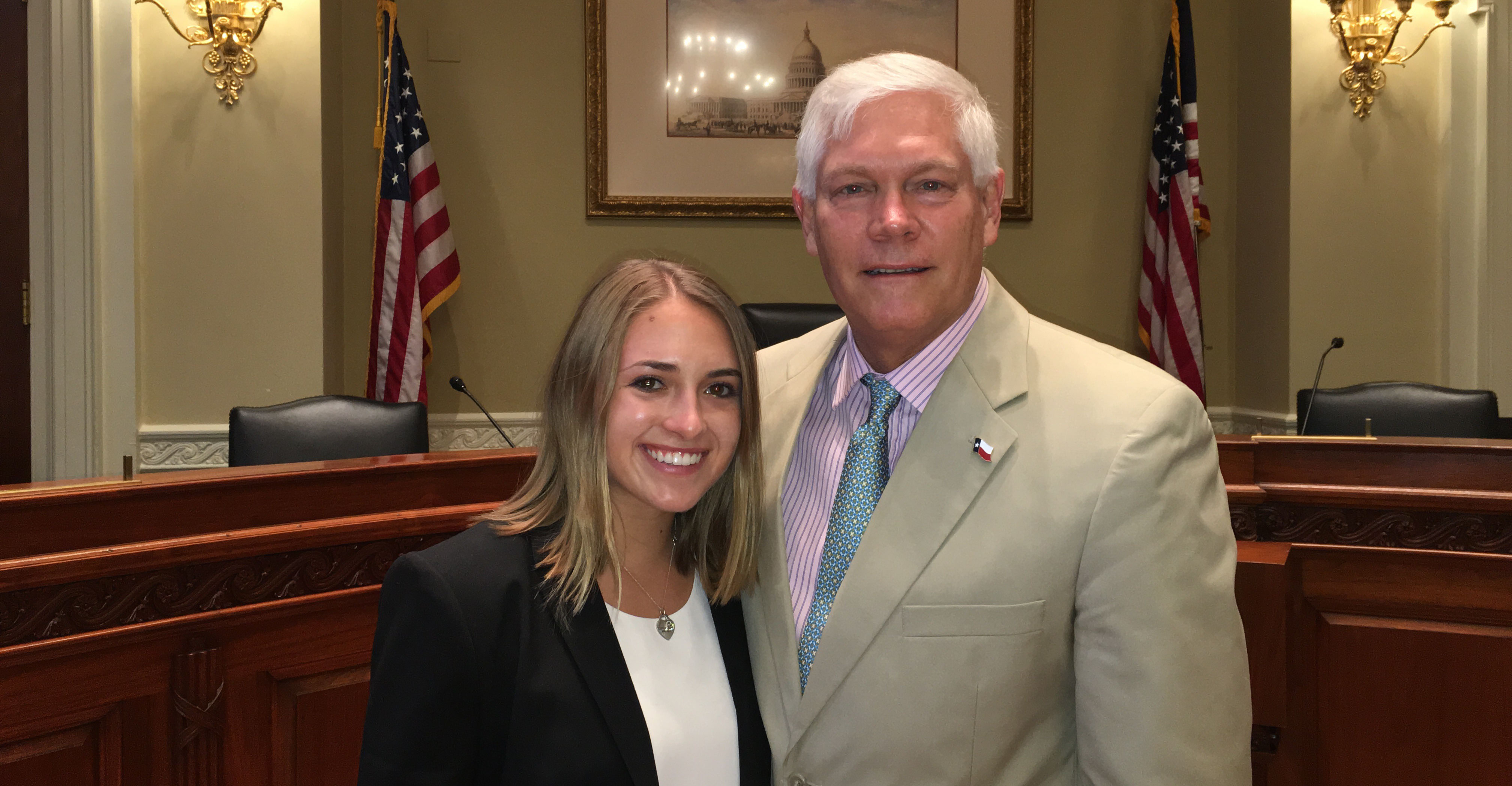
Thinking like a congressman
By Vanessa Ochavillo, ’18 (Human Biology), Cardinal Service Coordinator
Last summer, Kennedy Placek, ’18, interned at the Washington, D.C. office of Republican Congressman Pete Sessions of Dallas, Texas, an experience that she said enhanced her understanding of the political landscape beyond the San Francisco Bay Area, and the processes behind the policies that shape our lives in the United States.
“I went there to be as enriched as I could, and I felt that his office would do that for me,” Kennedy said.
When deciding where she wanted to do her Stanford in Government policy internship, Kennedy knew that she wanted to work for the head of a committee that fascinated her. Congressman Sessions chairs the Rules Committee, which oversees every piece of legislation that goes through Congress, crafts the legislation, and determines the rule that other bills will come to the House floor under. It is one of the most powerful Congressional committees.
Weeks into her internship, she earned a unique opportunity to join the Congressman’s team tasked with reviewing the 2018 National Defense Authorization Act (NDAA) and the 2018 Appropriations Act. For the NDAA alone, she researched its more than 400 amendments and summarized each one for Congressman Sessions, recommending how he should vote based on his support for other bills and his alliances with other members of Congress.
“I had to ask myself what would Pete do or what would Pete think,” she recalls. “There were some amendments that I would have personally wanted to strike down or vote ‘yes’ on, but I knew Pete wouldn’t,” she said.
Kennedy attributes her ability to work on the policy-making team to the support she received from the office staffers and the opportunity to attend congressional hearings, where she witnessed first-hand how politics play out. Though there were the occasional heated hearings, like a senate intelligence committee hearing about possible Russian interference in the 2016 U.S. presidential election, nearly all of the hearings were orderly and decisions were made.
But what struck Kennedy most from these meetings was the sight of her congressman shaking hands with Democrats. “When I saw that, I thought, ‘That should be the face of U.S. politics, someone reaching across the aisle,’” she said.
When she was not researching or sitting in on congressional hearings, she was responding to constituents’ letters and giving tours of the Capitol to those who flew in from Texas. On these three-hour tours, she interacted closely with people she said she would have never met had she not done this internship. It was fulfilling to share her passion for the U.S. Capitol and connect with families full of Texas-pride—some of whom had not ventured beyond their city borders before coming to D.C. and came from different backgrounds and political beliefs.
“What I appreciated working for a congressman not from my state or my area was that I was exposed to an area of the country that I really didn’t know much about,” she said. “I wish other people would see that and would push themselves to work outside of their ideological and political comfort zones.”
Kennedy Placek, ’18 (political science), was a 2017 Stanford in Government stipend recipient.
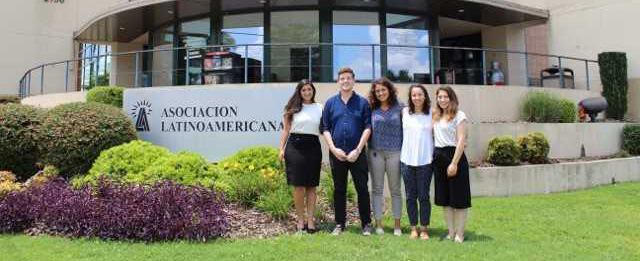
Advocacy in action
By Lydia Zemmali, ’20 (undeclared)
A Georgia legislator sits to my right. To my left, a representative from Forward.US, a nationwide advocacy organization, is opening the meeting with the current situation: DACA’s fall is imminent.
I am sitting in on a Latin American Association strategic meeting where Atlanta-based advocacy organizations, faith leaders, corporate businesses, and state legislators are discussing what to do should President Trump choose to rescind the Deferred Action for Childhood Arrivals, or DACA. They are taking their cue from the DACA recipients present in the room, asking “How can we best serve you?” A DACA recipient, an accomplished lawyer, responds, “I need to know you will do everything in your power to get between me and the ICE officer trying to deport me.”

The message is met with swift action. People write press releases, develop emergency preparedness plans, and arrange meetings with congressional representatives to work for the DREAM and American Hope Acts. In task forces, champions of social justice and businessmen work alongside each other to show the Atlanta community a united front in support of our DREAMers.
I had never witnessed collaboration of this kind. In that meeting, I had a profound realization that I want to continue be in these types of rooms—rooms in which people from many sectors of society concert their efforts, sharing their networks and expertise to bring about change.
Every single day, the Latin American Association showed me how to break down barriers for Latinos living in Atlanta. Each resume completed or Medicaid application filed is evidence of their impact. They showed me that, when run by culturally competent people with a connection to those they serve, a nonprofit can also be a community hub. My time there impressed upon me the importance of advocacy in any career path I choose, and my fellow coworkers embodied the kind of advocate I want to be: one who is responsive, culturally competent, and collaborative with different stakeholders.
Through Community Service Work-Study, Lydia worked as a Family Well-Being intern at the Latin American Association in Atlanta, Georgia.
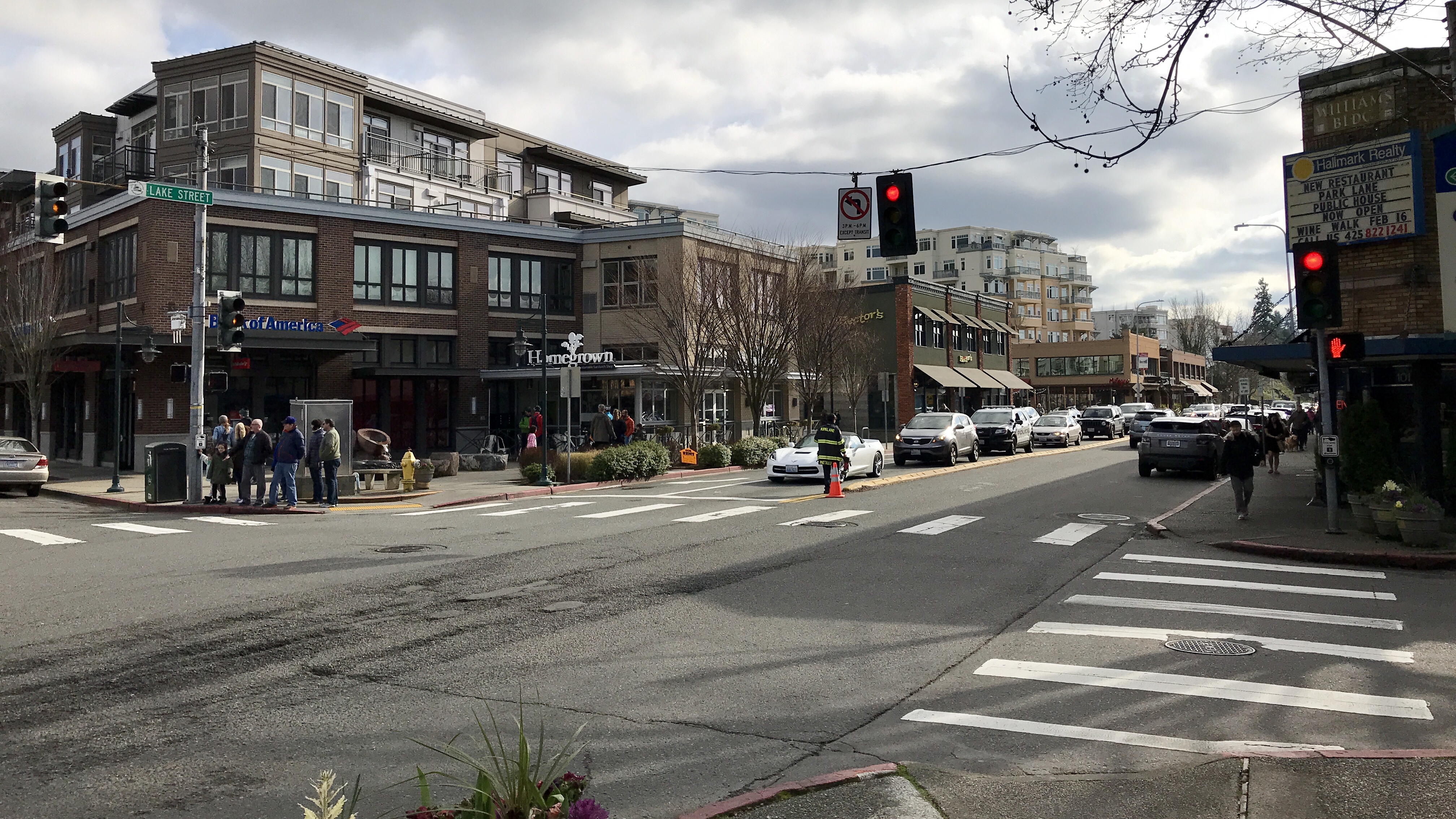
Mustard seeds
By Neal Black, ’94 (Civil/Environmental Engineering)
How small is a mustard seed, exactly?
I’m asking myself this from the dais of council chambers at the first council meeting after being sworn in. My decision to run for local office last November was inspired, in part, by my former Stanford classmate, now Senator, Cory Booker, who has instructed college graduates to “Stay faithful in things large and taking on the world, but stay faithful in those things small – because remember it’s the small things, the size of a mustard seed, that ultimately moves mountains.” As I work through tonight’s agenda, I’m wondering: When Cory thinks of a mustard seed, just how small a seed does he picture?
Tonight’s council agenda consists of a proposal to allow temporary signs on city right-of-ways (picture an A-frame sandwich board along the curb) and a proposal to up-zone four city blocks from two stories to five stories. Compared to things large, these seeds are tiny.
But wait. The community speaks, and I listen. I learn that A-frame sandwich boards are a matter of economic fairness and inclusiveness for some small business owners who can’t afford high-rent space along the main thoroughfare, some of whom are immigrants, older entrepreneurs, or just starting out. And those three extra floors? If done correctly, they’re a small part of a regional solution to affordable housing—a crisis here in the Seattle area.
Mustard seeds are tiny indeed. (I know. I Googled it.) But running for local office and working with like-minded neighbors to make small improvements to the city, ultimately, improves people’s lives.
 Neal began as a tutor for the Ravenswood-Stanford Tutoring Program (RSTP), working with students in East Palo Alto and Redwood City. He was a tutor coordinator in RSTP for two years. Neal was also a Stanford in Government fellow, interning at the Natural Resources Committee of the California State Assembly, and he attended Stanford in Washington, where he interned in the White House Office on Environmental Policy. Now a lawyer in Seattle, he has incorporated service to his community into his career and family life. He is the chair of the King County Bar Association’s Public Policy Committee, and, in November 2017, he was elected to the Houghton Community Council in Kirkland, Washington.
Neal began as a tutor for the Ravenswood-Stanford Tutoring Program (RSTP), working with students in East Palo Alto and Redwood City. He was a tutor coordinator in RSTP for two years. Neal was also a Stanford in Government fellow, interning at the Natural Resources Committee of the California State Assembly, and he attended Stanford in Washington, where he interned in the White House Office on Environmental Policy. Now a lawyer in Seattle, he has incorporated service to his community into his career and family life. He is the chair of the King County Bar Association’s Public Policy Committee, and, in November 2017, he was elected to the Houghton Community Council in Kirkland, Washington.
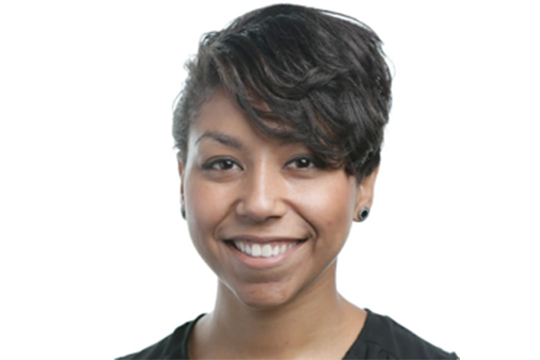
Returning to Guatemala
By Alicia Robinson, ’11 (International Relations)
I came to Stanford after spending most of my life living in Guatemala, where my mother worked for the United Nations. As an international relations major, my focus was on human rights and international law. As a sophomore, I obtained the Stanford Human Rights fellowship to work for UNICEF in Cairo. I was a member of the Stanford Rotaract Club, where I organized a service trip to Guatemala and also co-founded the Central American Students Association to raise awareness on campus about the socio-political realities of this region. I subsequently pursued my JD at Harvard Law School, where I continued to study human rights and post-conflict peace-building. I decided to return to Guatemala to contribute to efforts to curtail impunity, which has severely affected the country’s overall stability in recent years.
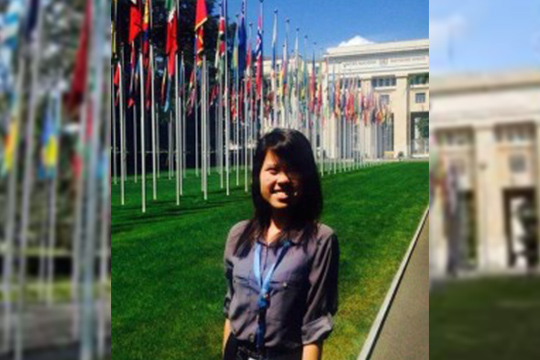
Strategy for humanitarian aid
By Monica Chan, ’17 (Mechanical Engineering; International Relations (minor))
Time: June 2015. Place: Geneva, Switzerland.
Finally, I had arrived for my long-awaited summer internship with the Shelter and Settlement Section of the United Nations High Commissioner for Refugees (UNHCR).
During my 9-week internship, I was taken on board several projects. The most interesting project I was involved in used the UNHCR’s newly developed “Master Plan” concept. The “Master Plan” aims to promote holistic and comprehensive design and development of settlements. My specific project was to develop a plot of land (1500 hectares) in Kenya not only to build a new refugee camp, but also to work towards a more sustainable solution for interaction between the refugee and host communities. I started the first steps by conducting research on the incoming refugee population, tracing out land contours, and studying the county government’s Integrated Development Plan. Drawing multiple drafts of camp designs was a long and iterative process, but essential to developing a settlement that ensures the safety and dignity of refugees.
This summer internship allowed me to merge my three passions – engineering, global affairs and public service. Working with such a qualified, dedicated team at an international humanitarian aid organization has definitely motivated me to educate people on and off campus about refugee crises and to be a more strategic advocate for human rights.
